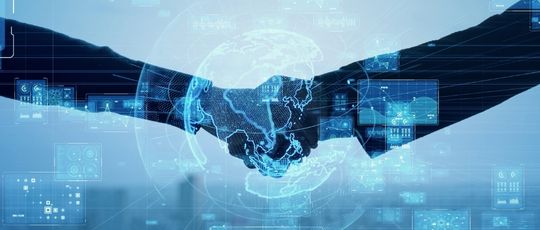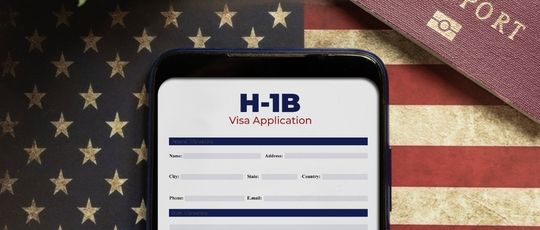For WorldatWork Members
- Data Innovation in the Era of AI, Workspan Magazine article
- AI Copilots: Improving the HR Experience for Employees, Journal of Total Rewards article
- Get the Most Out of Your AI Investment, Journal of Total Rewards article
- Integrating AI into Total Rewards: Innovation Meets Caution, webinar
For Everyone
- AI and Pay Transparency: Understand and Mitigate the Risks, Workspan Daily article
- Regulations on the Rise as Employers Experiment with AI, Workspan Daily article
- How Employers Can Leverage AI in Promotion Decisions, Workspan Daily article
Artificial intelligence (AI) is no longer the scary monster hiding around the corner for organizations.
A recent survey from employment and labor law firm Littler, which included more than 330 U.S. C-suite executives, found 66% of the respondents are using generative or predictive AI in HR functions, including to create HR-related materials (42%), recruit (30%) and source candidates (24%).
The data suggests more employers are embracing the technology. For HR/total rewards practitioners, that could bring several benefits (and risks) to the profession and workplace.
How HR/TR Pros Use AI
Total rewards pros are enhancing their knowledge and expertise in certain areas such as data analysis, points out Marta Turba, vice president of content strategy at WorldatWork. They are becoming more statistical savvy and collaborating with internal information technology (IT) teams to level up their AI skills.
“The shift is moving from theoretical planning to practical experimentation and adoption,” said Turba, who authored an article in the Q1 2024 issue of WorldatWork’s Journal of Total Rewards, “TR Is Key to Successfully Integrating AI and Work.”
Turba advised TR pros to “identify areas where the organization is investing in expanded AI capabilities, such as data warehousing or service bot models, and determine how to leverage these resources to enhance total rewards impact.”
Vidisha Mehta, global advisory digital solutions leader at WTW, noted that due to rapid pace of development with AI in the workplace, employers are promoting a culture of continuous learning, and encouraging employees to take AI-related courses to stay updated with the latest trends and technologies.
Some of this training may include a combination of structured training/courses and hands-on experience, such as specialized workshops and training programs designed to educate HR professionals on the use of AI tools and technologies.
By using these advanced tools, AI can assist with data-driven decision making, Mehta said.
“AI has a significant impact across the total rewards landscape — job leveling, pay benchmarking, pay structure design, career development and employee communication,” she explained. “Moreover, AI-powered tools provide real-time insights and responses through chatbots and virtual assistants.”
Turba added AI reduces manual work by automating mundane tasks such as writing job descriptions, and it helps answer frequently asked service questions and streamlines communications, freeing HR/TR pros to focus more on strategic and human-centric activities.
“AI enables us to uncover insights that might otherwise go unnoticed much faster,” Turba said. “It can identify misaligned rewards and behaviors through people science and statistical modeling, detect inequities in rewards distribution and impact, and support deeper analysis to uncover root causes.”
At the highest level, organizations are utilizing AI to transform the employee experience, Turba said.
“AI can make personalization a reality, which fosters a sense of value and loyalty, reducing turnover and onboarding costs,” she said.
Be Aware of Challenges and Risks
Despite the growing use of AI in the workplace, Littler’s survey found only 44% of organizations have generative AI policies in place and only 31% of organizations offer relevant AI training.
The survey also reported a disconnect between chief executive and chief human resources officers and their legal counterparts — 42% of the former believe AI will have a large impact in HR processes, while only 18% of chief legal officers agree. And, 52% of chief legal officers believe AI is not already being used in HR tasks, compared to only 18% of chief HR officers reporting the same.
“Given that uses of both generative and predictive AI vary widely by employee role, it’s important that executives focus on defining who the decision makers are, ensuring they are knowledgeable about the use of AI across the organization, and effectively socializing requirements and guidelines among employees,” Niloy Ray, Littler shareholder and a core member of the firm’s AI and Technology Practice Group, said in a statement.
Turba shared a similar sentiment: “The accountability to harness AI responsibly and deliver equitable, compliant and employee-centric programs ultimately rests with total rewards professionals.
Another concern with using AI is fairness and bias, Mehta said.
“AI models may generate biased outcomes due to training datasets which may be biased to start with,” she said. “Organizations must continuously monitor and refine their algorithms to ensure fairness and inclusivity.”
Such risks have prompted government officials to take action. In 2024, at least 40 states introduced AI bills related to discrimination, automated employment decision making and more.
Intellectual property risks are another challenge, Mehta said, because AI can inadvertently infringe on protected materials.
“Privacy concerns also arise from the use of personal data, necessitating the implementation of strict data privacy policies and adherence to regulations,” she said. “This is a particular concern for the HR function since they have access to sensitive personal information about employees.”
Editor’s Note: Additional Content
For more information and resources related to this article, see the pages below, which offer quick access to all WorldatWork content on these topics:








